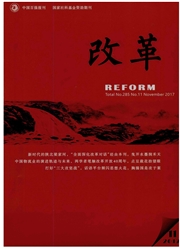

 中文摘要:
中文摘要:
运用Heckman两阶段法实证分析医疗补贴对流动人口健康投资意愿与能力的影响。结果表明:医疗补贴显著提高流动人口医疗保险购买意愿,但对流动人口医疗保健支出无显著性影响。这表明医疗补贴对流动人口健康投资意愿具有正向显著性激励效应,但并不能有效提高流动人口健康投资能力。其原因可能与城乡医疗体制分离有关,研究从描述性统计分析和模型的稳健性检验两个角度予以论证。此外,流动人口健康投资行为存在性别差异,男性较女性具有更强的健康投资意愿。健康状况较好、或已婚、或工作单位为事业单位、或签订合同的流动人口健康投资意愿更强。
 英文摘要:
英文摘要:
This paper has provided a relatively comprehensive analysis of the interaction between medical subsidy and health investment of floating population by using Heckman selection model. The results show that: medical subsidy significantly affect their intention of health investment rather than ability, the reason why is that it is maybe subjected to the institutional difference of medical care between rural and urban areas, which is demonstrated by descriptive statistical analysis and robustness test. Moreover, gender differences has been found in health investment behavior of floating population, male workers are more likely to invest their health. Married floating population pay more attention to health investment, and that more investment in health is the same as that for floating population with good health condition, or ones worked in public institution, or ones worked with contract.
 同期刊论文项目
同期刊论文项目
 同项目期刊论文
同项目期刊论文
 期刊信息
期刊信息
